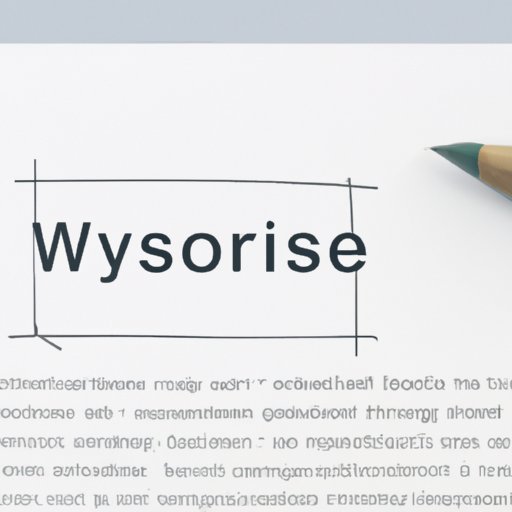Why Use Many Words: Unlocking The Power Of Language
So here's the deal, why use many words anyway? Ever found yourself stuck in a conversation, feeling like you're not getting your point across? Or maybe you're writing something, and it just doesn't feel... right. Well, using many words is like having a massive toolbox. The more tools you have, the better you can fix stuff, right? Words are your tools, and the more you've got, the more effectively you can communicate. Trust me, this ain't just about sounding smart; it's about being understood.
Now, let's dive into why using many words is so important. Language isn't just about stringing words together. It's about expressing thoughts, ideas, and emotions. And when you limit yourself to a small vocabulary, you're also limiting your ability to communicate effectively. Imagine trying to paint a masterpiece with only three colors. Sure, you can make something, but it won't have the depth or richness that a full palette would bring. The same goes for language.
In this article, we're gonna explore why using many words is essential for effective communication, how it impacts your personal and professional life, and how you can expand your vocabulary. So, grab a cup of coffee, sit back, and let's get into it. Oh, and don't worry, I'll keep it real, no fancy jargon here. Just good ol' conversational English.
Read also:Big Ass Stadium Tour Setlist Your Ultimate Guide To The Rocking Experience
Understanding the Concept of Why Use Many Words
Alright, so what exactly do we mean by "many words"? It's not about using big, complicated words just to show off. No, it's about having a wide range of words at your disposal so you can choose the right one for the job. Think of it like a spice rack. You wouldn't use cayenne pepper for everything, right? Sometimes you need a little salt, sometimes a dash of cinnamon. The same goes for words. Having a broad vocabulary allows you to pick the perfect word for the situation.
Using many words also helps you avoid repetition. Imagine reading a book where the author uses the same word over and over again. It gets boring, right? A rich vocabulary keeps things interesting and engaging. And let's be honest, who doesn't want to be the person in the room that people listen to because they say things in a way that's both clear and captivating?
Why Use Many Words in Communication
Communication is key, right? Whether you're talking to your boss, your partner, or your best friend, the words you choose matter. Using many words allows you to convey your message more precisely. It's like having a high-resolution camera. The more pixels you have, the clearer the picture. The more words you know, the clearer your communication becomes.
And it's not just about speaking. Writing is just as important. Whether you're drafting an email, writing a report, or even just texting, having a wide vocabulary helps you get your point across more effectively. Plus, it makes you sound more confident and knowledgeable. People are more likely to take you seriously when you can express yourself clearly and precisely.
How Many Words Impact Your Personal Life
Let's talk about your personal life for a sec. Using many words can improve your relationships. Think about it. When you can express your feelings and thoughts more clearly, you're less likely to have misunderstandings. And let's face it, misunderstandings can cause a lot of trouble. By having a rich vocabulary, you can communicate your needs and desires more effectively, leading to stronger, healthier relationships.
It also makes you a better listener. When you understand the nuances of language, you can pick up on the subtleties in what others are saying. This leads to deeper, more meaningful conversations. And who doesn't want that?
Read also:Faster Faster Until The Thrill Of Speed The Ultimate Rush
Why Use Many Words in Professional Settings
Now, let's shift gears to the professional world. In the workplace, effective communication is crucial. Whether you're giving a presentation, leading a meeting, or negotiating a deal, the words you choose can make or break your success. Using many words allows you to articulate your ideas more clearly, making you more persuasive and influential.
It also helps you stand out. In a competitive job market, having a strong vocabulary can set you apart from the crowd. Employers are looking for people who can communicate effectively, and having a wide range of words at your disposal is a big plus. Plus, it makes you sound more professional and knowledgeable, which can lead to more opportunities and promotions.
Why Use Many Words to Enhance Creativity
Creativity thrives on diversity, and that includes diversity in language. When you have a wide vocabulary, you can express your ideas in more creative ways. It's like having a bigger canvas to paint on. You can explore new angles, experiment with different styles, and create something truly unique.
And it's not just about writing or speaking. Even if your job doesn't involve a lot of verbal communication, having a rich vocabulary can enhance your creativity in other ways. It can help you think more critically, solve problems more effectively, and come up with innovative solutions. After all, creativity isn't just about art; it's about finding new ways to approach old problems.
Why Use Many Words in Storytelling
Storytelling is one of the most powerful forms of communication. Whether you're telling a story to your kids, writing a novel, or giving a speech, the words you choose can make all the difference. Using many words allows you to paint vivid pictures, create compelling characters, and craft engaging narratives.
It also helps you connect with your audience on a deeper level. When you can express yourself clearly and creatively, you can evoke emotions, spark imaginations, and leave a lasting impression. And isn't that what storytelling is all about?
Why Use Many Words to Improve Cognitive Function
Believe it or not, using many words can actually improve your brainpower. Studies have shown that having a rich vocabulary is linked to better cognitive function, memory, and problem-solving skills. It's like giving your brain a workout. The more you use it, the stronger it gets.
And it's not just about learning new words. It's about using them in different contexts, experimenting with different meanings, and expanding your understanding of language. This keeps your mind sharp and agile, helping you stay mentally fit as you age.
Why Use Many Words for Better Problem Solving
Problem-solving is a key skill in both personal and professional life. And having a wide vocabulary can enhance your ability to solve problems more effectively. When you can express your thoughts clearly and precisely, you can break down complex problems into manageable parts. This makes it easier to find solutions and make informed decisions.
Plus, having a rich vocabulary allows you to think more critically and creatively, which can lead to more innovative solutions. It's like having a bigger toolbox to tackle any challenge that comes your way.
Why Use Many Words in Everyday Conversations
Let's bring it back to everyday life. Using many words in everyday conversations can make them more interesting and engaging. Whether you're chatting with friends, family, or colleagues, having a wide vocabulary can make you more fun to talk to. People are drawn to those who can express themselves clearly and creatively.
It also helps you avoid awkward silences. When you have a rich vocabulary, you're less likely to run out of things to say. And let's be honest, nobody likes an awkward silence. By having a wide range of words at your disposal, you can keep the conversation flowing smoothly and naturally.
Why Use Many Words to Avoid Misunderstandings
Misunderstandings can happen when people don't have the right words to express their thoughts. By using many words, you can avoid these misunderstandings and ensure that your message is clear. This leads to better communication, stronger relationships, and fewer conflicts.
It also makes you a better listener. When you understand the nuances of language, you can pick up on the subtleties in what others are saying. This leads to deeper, more meaningful conversations. And who doesn't want that?
Why Use Many Words for Better Writing
If you're a writer, having a wide vocabulary is essential. Whether you're writing fiction, non-fiction, or even just emails, the words you choose matter. Using many words allows you to express your ideas more clearly, create more engaging narratives, and captivate your readers.
It also helps you avoid repetition. Imagine reading a book where the author uses the same word over and over again. It gets boring, right? A rich vocabulary keeps things interesting and engaging. And let's be honest, who doesn't want to be the writer that people can't put down?
Why Use Many Words for Better Speaking
Public speaking can be nerve-wracking, but having a wide vocabulary can make it easier. When you can express yourself clearly and confidently, you're more likely to engage your audience and leave a lasting impression. Using many words allows you to articulate your ideas more effectively, making you more persuasive and influential.
It also helps you avoid filler words. You know, those "ums" and "ahs" that can make you sound unsure or unprepared. By having a rich vocabulary, you can fill those gaps with meaningful words, making your speech more polished and professional.
Conclusion: Why Use Many Words
So there you have it, why use many words. Whether you're communicating in your personal life, professional life, or even just in everyday conversations, having a wide vocabulary is essential. It helps you express yourself more clearly, connect with others on a deeper level, and achieve your goals more effectively.
So, what are you waiting for? Start expanding your vocabulary today. Read more, learn new words, and practice using them in different contexts. The more you use them, the more natural they'll become. And before you know it, you'll be communicating like a pro.
And remember, this isn't just about sounding smart. It's about being understood. So go out there and start using those many words. And if you found this article helpful, don't forget to share it with your friends and family. Who knows, you might just help them improve their vocabulary too!
Article Recommendations


